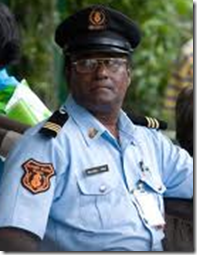Scanning the bookshelves in my den, I quickly spotted the
seriously damaged binding of the old atlas I had been looking for. Worthless,
except as a curiosity, I found it many years ago among some unsaleable, water-damaged
books at an estate sale. Its original owner had stashed other maps among the
torn and yellowed pages of the oversized book. A world map is a curious thing
when you think about it. It is not a photograph (certainly not from 1923).
Rather, it is someone's image of a world, typically divided in an illustrative
sort of way by blue wiggly lines that are rivers and black lines forming the
sometimes shifting boundaries of countries. Given the scale involved, almost
anything on a world map is approximate, a cartographer's creation.
Maps fascinate me. Looking at one requires imagination, a
willing suspension of disbelief. Like when I held up the tiny globe my
grandson had chosen as a prize for something or other and I pointed out to him,
"That is where grandma and grandpa live". Naturally enough, he was
mystified, looking at me strangely as if to suggest that my dopamine-deprived
brain had finally begun to run on empty. "How could that be?", I'm
sure he would have said had he been old enough. But after all, we read a map
like we do a book, believing the places we point out are real. Mystery or not,
a map can stir one's passion. A world map can depict great adventure. A world
atlas, like its mythical namesake, can be a way to hold the world in one's
hands.
Maps often tell stories in a very fundamental fashion, like
the one I found in the old atlas that showed Africa in the grip of fascist
powers during World War II. But add narrative and a map can become a
drama about dangerous destinations and the trials of traveling there.
Hidden on the inside of the door of my bedroom closet,
carefully taped at eye level, hangs my own private fantasy. Actually, it is an
encyclopedia of potential experiences. It is a world map, a depiction of my dreams.
Every night as I prepare for bed, and every morning as I get dressed, I
mentally track through the locations I anticipate experiencing in reality. Starting with the
fog-engulfed Lima, Peru, then to Cuzco, Peru, the gateway to the mysterious Machu
Picchu, the list of destinations goes on as I trace with my finger the path of travel from the
left margin, one location to the next, until I hit the right margin of my map.
Just a few days from now, May 1, I will begin writing a nonfiction
story on my map of the world. Not literally, of course, but still, it will
still be real. It will be part autobiography, part history, with some medical science, travelogue and even comedy thrown in. But mostly it will be
biographical. It will be a script extemporaneously written by the actors, those I meet,
will play themselves. But even before a word is written, or a line spoken, I
know the title. It summarizes both the quest and the outcome of epic proportions. It
is the title of a journey that cannot help but "Shake up My World".


























